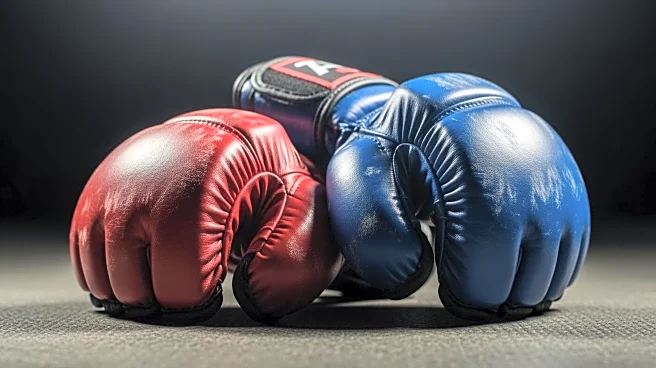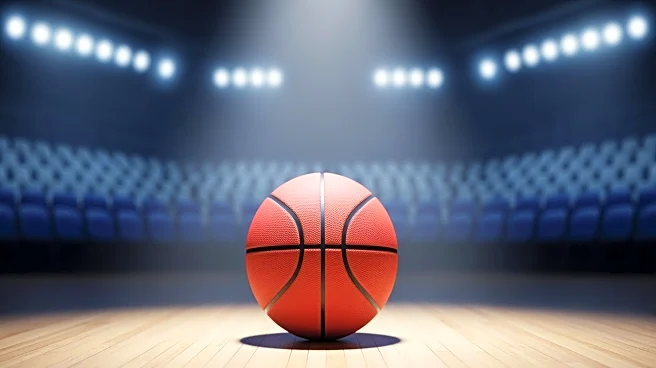What is the story about?
What's Happening?
Billy Vigar, a former Arsenal academy striker, has died following a significant brain injury sustained during a game at Wingate and Finchley. The 21-year-old was injured in the Isthmian League Premier Division match, reportedly after colliding with a concrete wall. Vigar was placed in an induced coma and underwent surgery, but the injury proved fatal. His family expressed devastation over the loss, highlighting his passion for football. Vigar had a promising career, having played for Arsenal, Derby County, Eastbourne Borough, and Hastings United. Tributes have poured in from clubs and the football community, mourning the loss of a talented young player.
Why It's Important?
The tragic death of Billy Vigar underscores the risks associated with contact sports and the importance of safety measures in sporting venues. It raises questions about the adequacy of protective barriers and emergency response protocols during games. Vigar's passing is a significant loss to the football community, particularly for the clubs he represented. It also highlights the emotional and psychological impact on players, families, and fans when such incidents occur. The football community's response, including tributes and condolences, reflects the close-knit nature of the sport and the shared grief over losing a promising talent.
What's Next?
In response to Vigar's death, there may be increased scrutiny on safety standards in football stadiums, particularly in lower leagues. Clubs and governing bodies might review and enhance safety protocols to prevent similar incidents. The postponed match between Chichester City FC and Lewes will be rescheduled, allowing time for the community to mourn and pay respects. Vigar's family and friends will continue to receive support from the football community, and discussions around player safety and mental health support may gain momentum.
Beyond the Headlines
Vigar's death could lead to broader discussions about the ethical responsibilities of sports organizations to ensure player safety. It may prompt a reevaluation of how injuries are managed and the support systems in place for affected players and families. The incident also highlights the cultural significance of football as a community-building sport, where players are not just athletes but integral members of their communities. The collective mourning and tributes reflect the deep connections formed through sports and the shared values of resilience and support.















